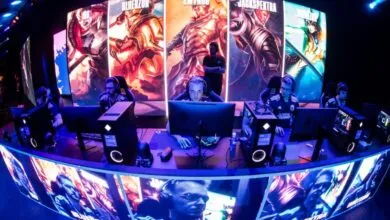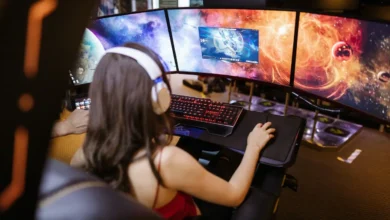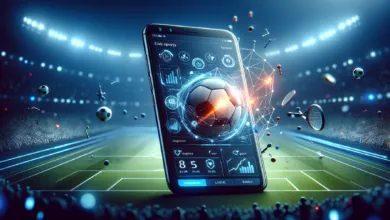Your Guide To Making Time for Fun and Games as a Busy Grad Student
There is always an opportunity for having fun!
Graduate school can be a challenging time, filled with coursework, research, and professional development. As a grad student, you might feel like there’s little room for leisure amid academic demands. Keep reading to discover how you can effectively integrate these vital elements into your busy life.

Fun and Games Within Reach
Incorporating play into your study routine involves engaging in activities that rejuvenate your spirit. Video games, puzzles, or even simple card games can serve as effective tools for mental relaxation and cognitive reset. Having these activities easily accessible ensures that you can make the most of your downtime.
Leisure tasks that are also cognitively engaging, such as chess or brain training apps, can keep the mind active while being a necessary break from academics. The key is to choose games that are enjoyable and offer a sense of completion within a relatively short period.
Don’t overlook the psychological benefits of casual gaming. An online sweepstakes casino offers an environment for low-stakes entertainment that can be indulged in moderation. This digital playground can provide a quick and enjoyable escape, allowing you to unwind without detracting from your studies.
Building a Supportive Social Network
Grad school can sometimes feel isolating, but building a network of peers who understand the academic grind is invaluable. While networking is often emphasized for professional advancement, it’s also crucial for recreation. A social circle that appreciates the need for regular breaks can facilitate group activities, providing mutual support.

Engage with your peers outside the classroom or lab. Organize social study groups that can transition into game nights or sporting activities. This approach aligns leisure with academic interaction, maximizing the efficiency of your time.
Joining clubs or campus organizations is an excellent way to meet like-minded students. Whether it’s through intramural sports, a book club, or a cultural society, these organizations can carve out structured time for entertainment. Plus, they add a social dimension that enriches the recreational experience.
Short Breaks and Micro-Activities
The concept of a study break can often be misunderstood or underutilized by grad students. Rather than random intervals of idleness, breaks should be purposeful periods of recuperation. Short, structured breaks taken throughout the day can do wonders for stress relief and mental agility.
Micro activities are small, easily accomplished tasks or hobbies that can fit into these breaks. Such activities may include doodling, practicing a musical instrument, or even a quick walk outside. These activities offer a sense of change and achievement that can counterbalance the intensive focus required for academic work.
Engage in physical activities, especially those that don’t need much preparation, like stretching or doing a few yoga poses. They provide both a break for the mind and much-needed movement for the body. Simple meditation or mindfulness exercises can also be effective.
Time Management Strategies for Grad Students
Effective time management forms the bedrock of academic and personal success for grad students. The ability to delineate between work and play is predicated on organized scheduling. Utilize digital calendars and planners to block time for both research and leisure activities.

One useful strategy is the Pomodoro Technique. It involves breaking work into intervals, traditionally 25 minutes long, that are separated by short breaks. This technique can create a rhythm that enhances focus during study periods.
By setting specific goals for each study block, you can stay on track and ensure that you’re making the most of your dedicated academic time. Avoid multitasking, which can dilute your attention and extend the time needed to complete tasks.
Students who are particularly pressed for time might consider online educational options. Online programs often allow for asynchronous learning, offering more control over when and where you study and play. You can pursue a master’s degree in IT, which offers the flexibility to better manage your schedule.
Overall, managing the grad school work-play balance lies in recognizing the synergistic relationship between academic performance and leisure. By incorporating fun and games into your routine, you’ll prime yourself for fulfillment in your academic and personal life.




